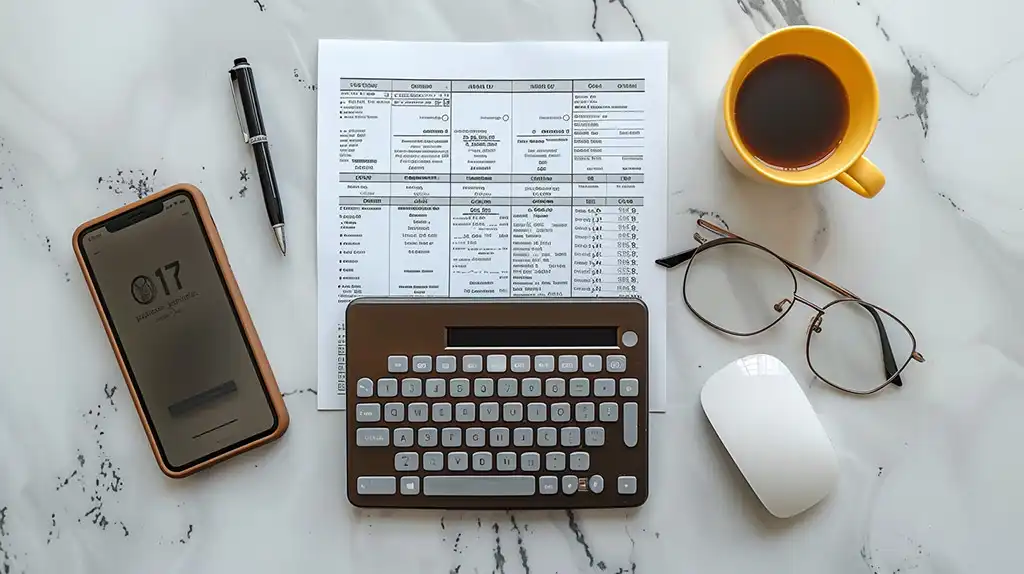04 September 2024
Tax season—a phrase that either fills you with dread or anticipation. For many, it’s a time to square up with Uncle Sam, but for others, it’s a chance to get a little something back. If you’re in the latter camp, you’re probably wondering, "How can I get the biggest tax refund possible this year?" Well, you’re in the right place. Maximizing your tax refund isn’t just about luck or crossing your fingers; it’s about knowing the rules, making strategic decisions, and maybe even thinking outside the box a little. Let’s dive into some tried-and-true strategies to help you get the most out of your tax return.Understand Your Tax Situation
Before you can start maximizing your refund, you need to understand your tax situation. Are you single, married, or head of household? Do you have dependents? Are you self-employed or working multiple jobs? Each of these factors can significantly affect your tax liability and refund.

Take the time to review your income, deductions, credits, and any changes in your life that might impact your taxes. For instance, did you get married or divorced? Have a child? Buy a house? Each of these life events could open up new opportunities for tax savings.
Maximize Your Deductions
Deductions reduce your taxable income, which means the more you can deduct, the less income you’re taxed on, and the bigger your potential refund. But to maximize your refund, you need to know which deductions you qualify for and how to claim them.
1. Itemize vs. Standard Deduction
The IRS gives you two options: you can take the standard deduction or itemize your deductions. The standard deduction is a flat amount that reduces your taxable income, and it’s pretty generous—especially after the Tax Cuts and Jobs Act nearly doubled the standard deduction a few years ago.
For 2023, the standard deduction is $13,850 for single filers and $27,700 for married couples filing jointly. That’s a lot of money, and for many people, it’s more beneficial than itemizing.
But if you have significant deductible expenses—like high medical bills, mortgage interest, or charitable donations—itemizing could save you even more. The key is to add up all your potential itemized deductions and compare them to the standard deduction. Choose the method that gives you the greater tax benefit.
2. Charitable Donations
Did you know that your generosity could boost your tax refund? If you made donations to a qualified charitable organization, you could deduct those contributions on your taxes. This includes not just cash donations but also the fair market value of any goods you donated.
And don’t forget those smaller contributions that often go overlooked. Even if you donated just a few dollars here and there, it all adds up. Just make sure you have receipts or other documentation to back up your claims.
3. Medical and Dental Expenses
If you had significant medical or dental expenses in the past year, you might be able to deduct them—provided they exceed 7.5% of your adjusted gross income (AGI). This can include everything from doctor visits and prescription medications to medical equipment and health insurance premiums.
This deduction can be a bit tricky to qualify for, as the threshold is relatively high. However, if you had a particularly costly year due to illness or major medical procedures, it’s worth looking into.
4. Homeownership Deductions
Owning a home can come with some hefty tax breaks. The mortgage interest deduction is one of the most well-known, allowing you to deduct the interest you paid on your mortgage throughout the year. You can also deduct property taxes and, in some cases, mortgage insurance premiums.
If you made energy-efficient improvements to your home, like installing solar panels or energy-efficient windows, you might qualify for additional credits or deductions.
5. Work-Related Expenses
If you’re self-employed or have a side gig, you might be able to deduct work-related expenses. This includes things like office supplies, travel expenses, and even a portion of your home if you use it as a home office. However, since the Tax Cuts and Jobs Act, unreimbursed employee expenses are no longer deductible for most taxpayers, so this mainly applies to self-employed individuals.
Don’t Overlook Tax Credits
Tax credits are even better than deductions because they reduce your tax bill dollar-for-dollar. While deductions lower your taxable income, credits directly reduce the amount of tax you owe. And some credits are even refundable, meaning you can get money back even if you don’t owe any taxes.
1. Earned Income Tax Credit (EITC)
The Earned Income Tax Credit is one of the most valuable tax credits available, especially for low- to moderate-income earners. Depending on your income and the number of children you have, the EITC could put thousands of dollars back in your pocket.
However, the EITC is often overlooked by those who don’t realize they qualify, especially if their income fluctuates or they don’t have children. Be sure to check if you’re eligible for this credit—it could significantly increase your refund.
2. Child Tax Credit
If you have children, the Child Tax Credit can be a major boost to your tax refund. For 2023, the credit is worth up to $2,000 per qualifying child under the age of 17. What’s even better is that up to $1,400 of the credit is refundable, meaning you can get it even if you don’t owe any taxes.
3. Education Credits
If you, your spouse, or your dependents were enrolled in college or other qualifying education programs, you might be eligible for education credits. The two most common are the American Opportunity Tax Credit (AOTC) and the Lifetime Learning Credit (LLC).
The AOTC is worth up to $2,500 per student for the first four years of college, and 40% of it is refundable. The LLC, on the other hand, is worth up to $2,000 per tax return and can be used for any post-secondary education, including graduate school or even courses to improve job skills.
4. Saver’s Credit
The Saver’s Credit is designed to encourage low- to moderate-income taxpayers to save for retirement. If you contributed to a retirement account, such as a 401(k) or IRA, you might qualify for this credit. The amount of the credit depends on your filing status and income, but it can be worth up to $1,000 ($2,000 for married couples filing jointly).
5. Energy Efficiency Credits
If you made energy-efficient improvements to your home, you might be eligible for a federal tax credit. The Residential Energy Efficient Property Credit allows you to claim a credit for a percentage of the cost of solar, wind, and geothermal energy systems. Even small improvements like installing energy-efficient windows, doors, or insulation might qualify for a credit under the Nonbusiness Energy Property Credit.
Timing Is Everything
When it comes to taxes, timing can make a big difference. Strategic timing of certain financial activities can help you maximize your refund or reduce your tax liability.
1. Contribute to Retirement Accounts
One of the easiest ways to reduce your taxable income and boost your refund is to contribute to a retirement account. Contributions to traditional IRAs, 401(k)s, and other retirement accounts are often tax-deductible, which means they lower your taxable income.
And here’s the best part: you have until the tax filing deadline (typically April 15) to make contributions for the previous year. That means if you’re looking for a last-minute way to increase your refund, consider making a contribution before you file your taxes.
2. Bunching Deductions
If your itemized deductions are close to the standard deduction, you might benefit from a strategy called bunching. Bunching involves timing your deductions so that you maximize them in one tax year, allowing you to itemize in that year and take the standard deduction the next.
For example, if you make a large charitable donation in December, you could bunch it with other deductible expenses like medical bills or property taxes, allowing you to itemize for the current year. The following year, you can take the standard deduction.
3. Plan for Capital Gains and Losses
If you have investments, the timing of when you sell them can impact your tax bill. Capital gains (profits from the sale of investments) are taxed at different rates depending on how long you held the asset and your income level. If you’re looking to minimize your tax liability, consider holding onto investments for at least a year to qualify for the lower long-term capital gains tax rate.
On the flip side, if you’ve realized losses on your investments, you can use those losses to offset gains and potentially reduce your taxable income. This strategy is known as tax-loss harvesting.
Avoid Common Mistakes
Even with the best intentions, it’s easy to make mistakes on your tax return that can cost you money or delay your refund. Here are a few common mistakes to avoid:
1. Filing Too Late
The IRS imposes penalties for late filing, so be sure to file your return on time. If you need more time, file for an extension, but remember that an extension gives you more time to file, not to pay any taxes owed.
2. Forgetting to Claim All Income
Make sure you report all your income, even if it’s from side gigs, freelance work, or investments. The IRS receives copies of your income statements (like W-2s and 1099s), so failing to report all your income can lead to penalties and interest.
3. Overlooking Tax Credits and Deductions
As we’ve discussed, there are many tax credits
and deductions available that can reduce your tax bill and increase your refund. Make sure you take the time to research and claim all the credits and deductions you’re eligible for.
4. Entering Incorrect Information
Double-check all the information on your tax return, including Social Security numbers, bank account information, and amounts entered. Simple errors can delay your refund or cause your return to be rejected.
Consider Professional Help
While many people can successfully file their taxes on their own, sometimes it’s worth seeking professional help—especially if your tax situation is complicated. A tax professional can help you navigate complex tax laws, identify opportunities to maximize your refund, and ensure your return is accurate and complete.
Plus, working with a professional can provide peace of mind, knowing that your taxes are in good hands and that you’re getting the best possible refund.
Conclusion: Take Control of Your Tax Refund
Maximizing your tax refund doesn’t have to be a mystery. With a little knowledge, strategic planning, and attention to detail, you can take control of your tax return and potentially boost the amount you get back from the IRS.
Remember, every dollar you save on taxes is a dollar you can put towards your financial goals, whether that’s paying off debt, saving for a down payment on a home, or building your retirement nest egg. So, as tax season approaches, take the time to explore your options, claim every credit and deduction you’re entitled to, and file with confidence.
After all, it’s your money—make sure you’re getting as much of it back as possible. Happy filing!


